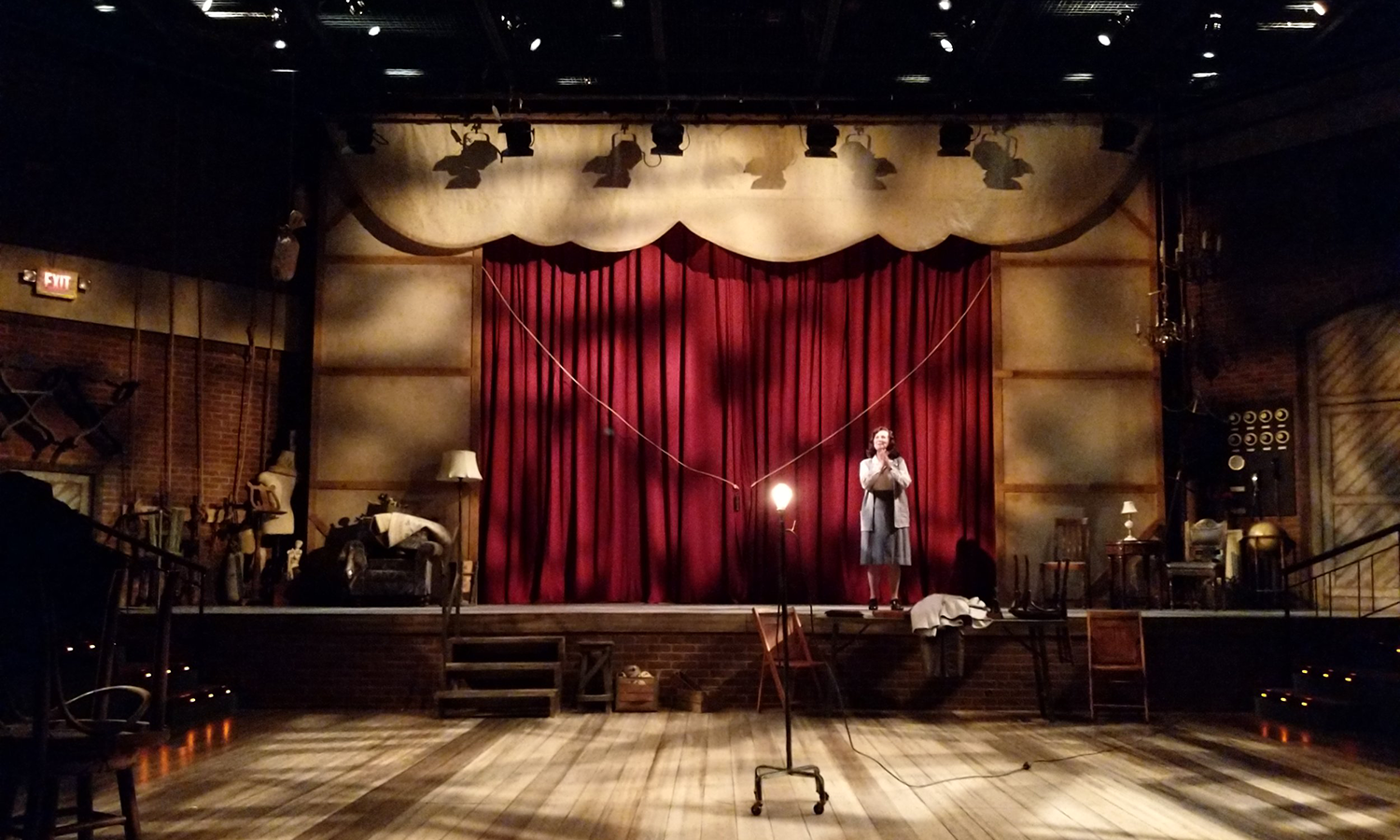Community, Leadership, Experimentation, Diversity, & Education
Pittsburgh Arts, Regional Theatre, New Work, Producing, Copyright, Labor Unions,
New Products, Coping Skills, J-O-Bs...
Theatre industry news, University & School of Drama Announcements, plus occasional course support for
Carnegie Mellon School of Drama Faculty, Staff, Students, and Alumni.
CMU School of Drama
Friday, February 26, 2021
Illuminating the Careers of Disabled Lighting Designers
HowlRound Theatre Commons: Annie Wiegand is the first, and maybe the only, professional Deaf lighting designer in the theatre industry in the United States. She has been working as a freelance designer in New York City for a decade and is also a professor in the theatre and dance program at Gallaudet University, the only university in the world for Deaf students. Michael Maag is a lighting and projection designer who acquired his disability in a car versus bicycle accident in 2003 and became a T-9 paraplegic. He is the resident lighting designer at the Oregon Shakespeare Festival and a founding member of Kinetic Light, a disability arts ensemble.
Labels:
Accessibility,
Career Advice,
Careers,
Lighting Design
Subscribe to:
Post Comments (Atom)

4 comments:
I'm kind of ashamed to admit that I've never stopped to think about how unforgiving this industry might be to disabled people working in it. This 'get the job done no matter what/the show must go on' attitude that pervades throughout the design & production side of the theatre or live entertainment industry can be harmful to any able-bodied individual, and can cause so much gatekeeping and further harm to those with any form of disability. Things you don't even think about as an able-bodied person, like headsets, being able to easily jump on stage to fix something, and the architecture of theatre houses and spaces. This is a conversation that needs to be taken further in the industry as it begins to rebuild. How can we create more empathetic physical spaces that are kinder to disabled people? And how can we make the workings of this industry kinder to the humanity that makes it possible?
These are incredibly inspiring stories about lighting designers with disabilities. It is not very often that people with disabilities are given the opportunity to be heard and tell their stories for others to listen to. It is inspiring to see how these people altered their processes and how they work completely differently to adjust to doing this work with their disabilities. I like what Michael said about disabilities being another social construct. I agree with this. It does not need to be a defining characteristic of a person; it simply alters the way they go about doing their design process and how to achieve that while overcoming their challenges. This is extremely inspiring. I would not have even imagined how difficult it would be for a deaf person to design lighting before this article illuminated it to me, but all of our communication in a theatre is done via headsets. She had to find ways to be able to communicate with her team in a different way. This article brought to light how inaccessible our career is to people with disabilities and will make me think about the work we do very differently after reading this.
Lovely as this conversation was, it made me realize and feel anger at the theater industry for lacking so much regarding accessibility. I can somehow rationalize the hurdle of the headset, there are only ways one can work around it but it is a very practical piece of equipment. Other things such as the row situation feel to me like an easy fix. Maybe then, make the space for everyone to be able to reach a table in the middle of the theater. I know it's easier said than done, but I think that everyone should be able to create and enjoy theater if they so choose to. Another thing that stuck with me was that someone mentioned how “disability is a social construct.” It sounds odd at first, but quite frankly I am planning on taking that phrase and running with it. People with disabilities just do things differently than able-bodied people, but that’s pretty much it and I love how it was brought up here.
I was first introduced to the idea of disability being entirely a construct based upon the environment one is in in a Bioethics class, and it has been a thought I have been considering a lot in the past year. I feel as though this article really highlighted this thought, and demonstrated that we do not have to keep these structures in place that create disability. It was really interesting to read about how specifically the theater industry and many of the conventions within the industry are very hard to navigate. It is also really important to note that the theater industry is definitely awful about making things accessible, but honestly so is our whole world. Making things truly accessible to as many people is just not one of the biggest priorities unfortunately, and that seeps into every industry. I think universal design is so important, and something that we should definitely be emphasizing both in the theater industry as a whole, but also set design. We should not wait until an actor in a wheelchair is cast to make a set accessible, it should be designed from the beginning to be accessible.
Post a Comment